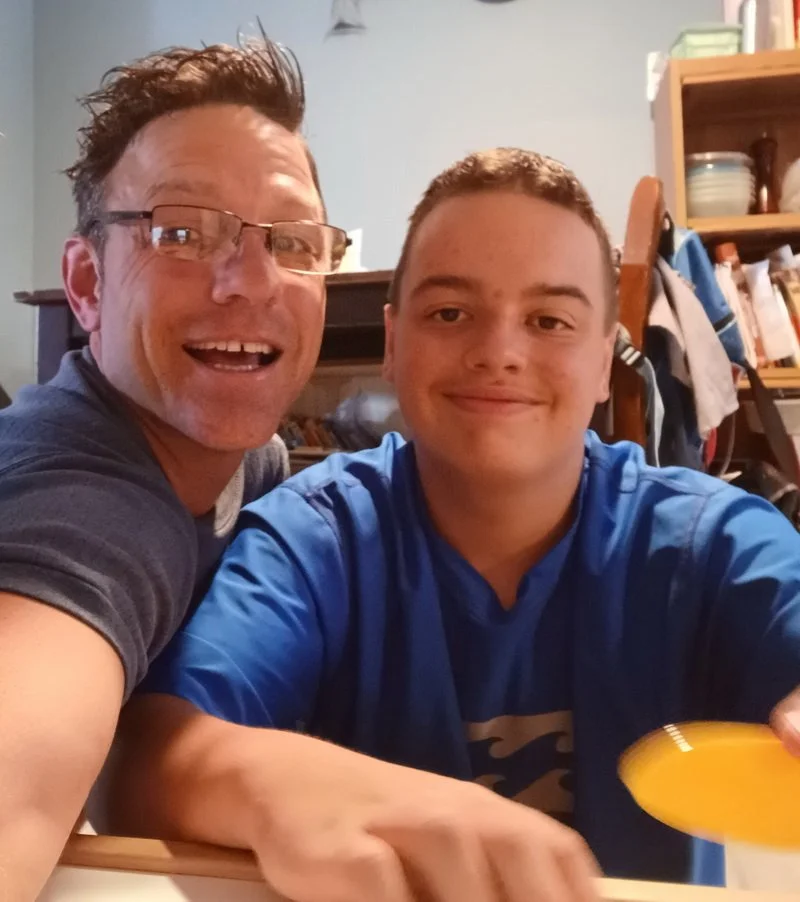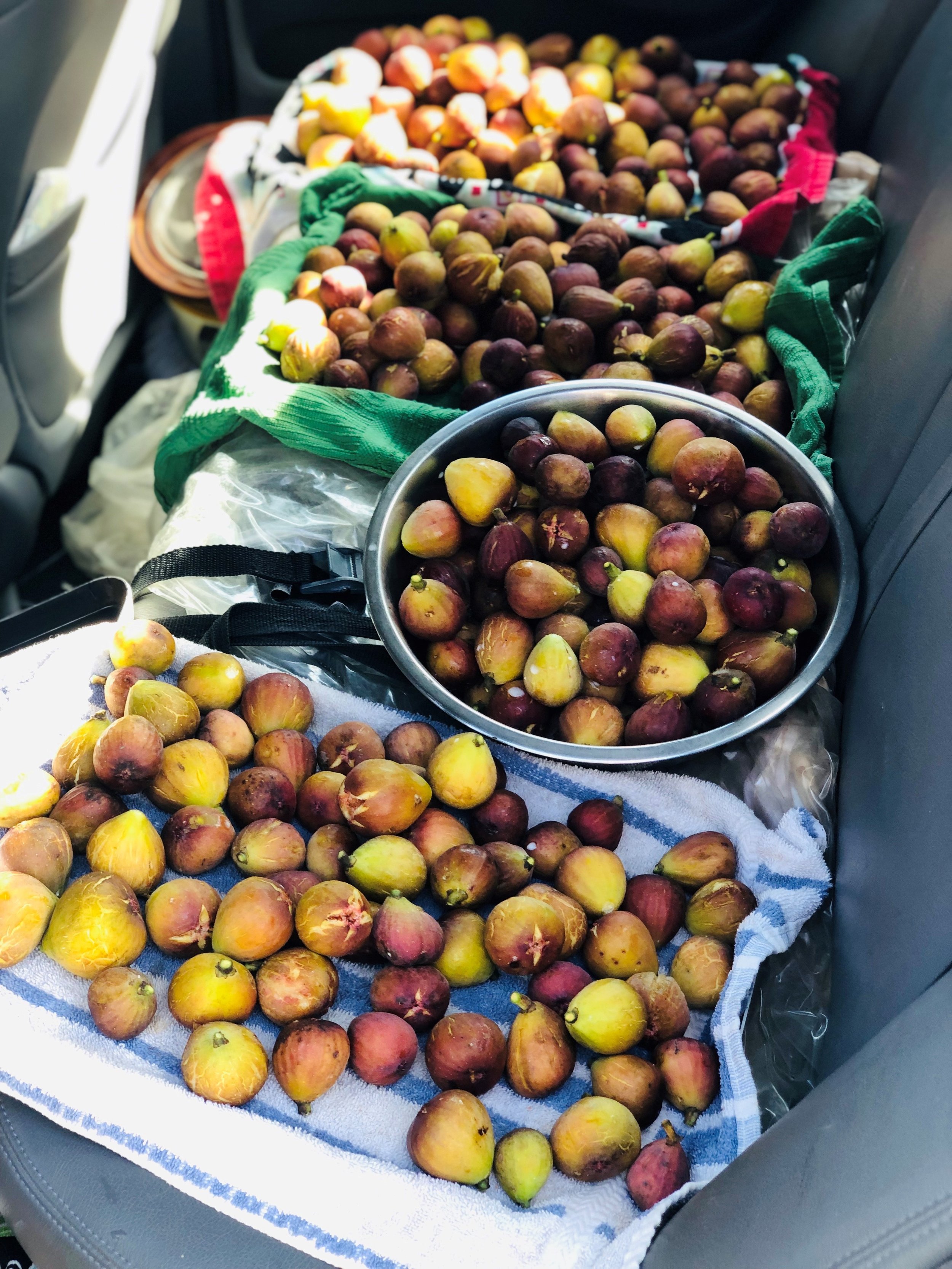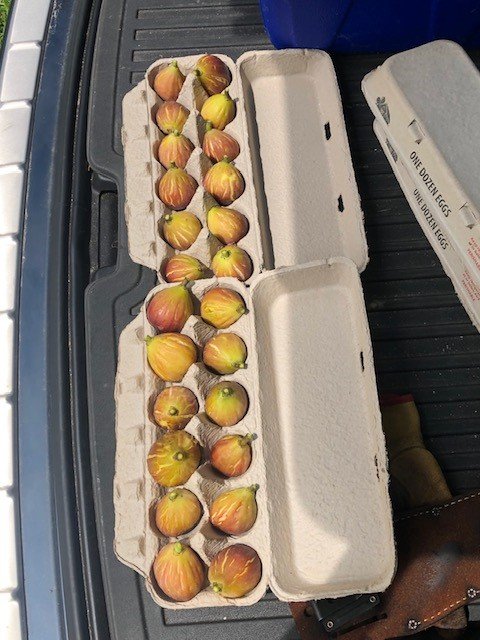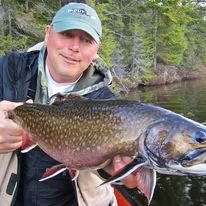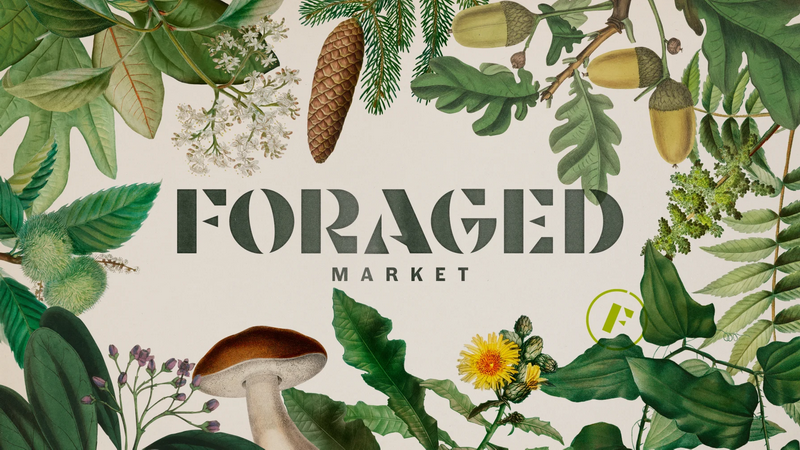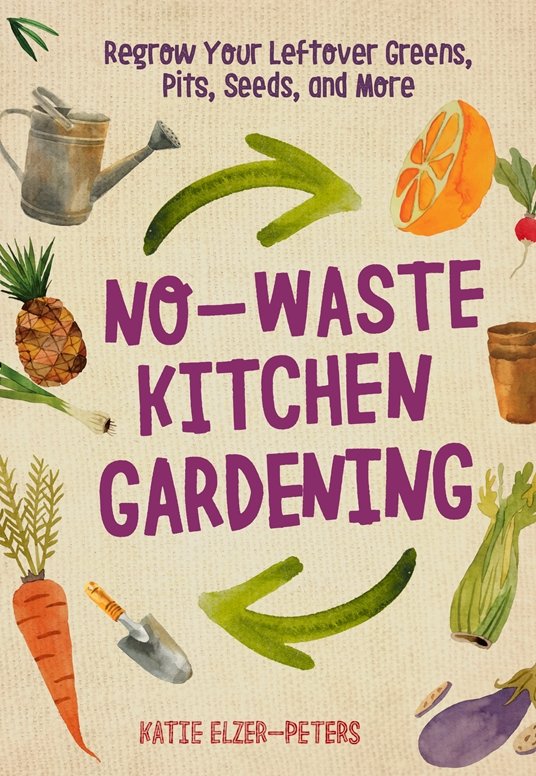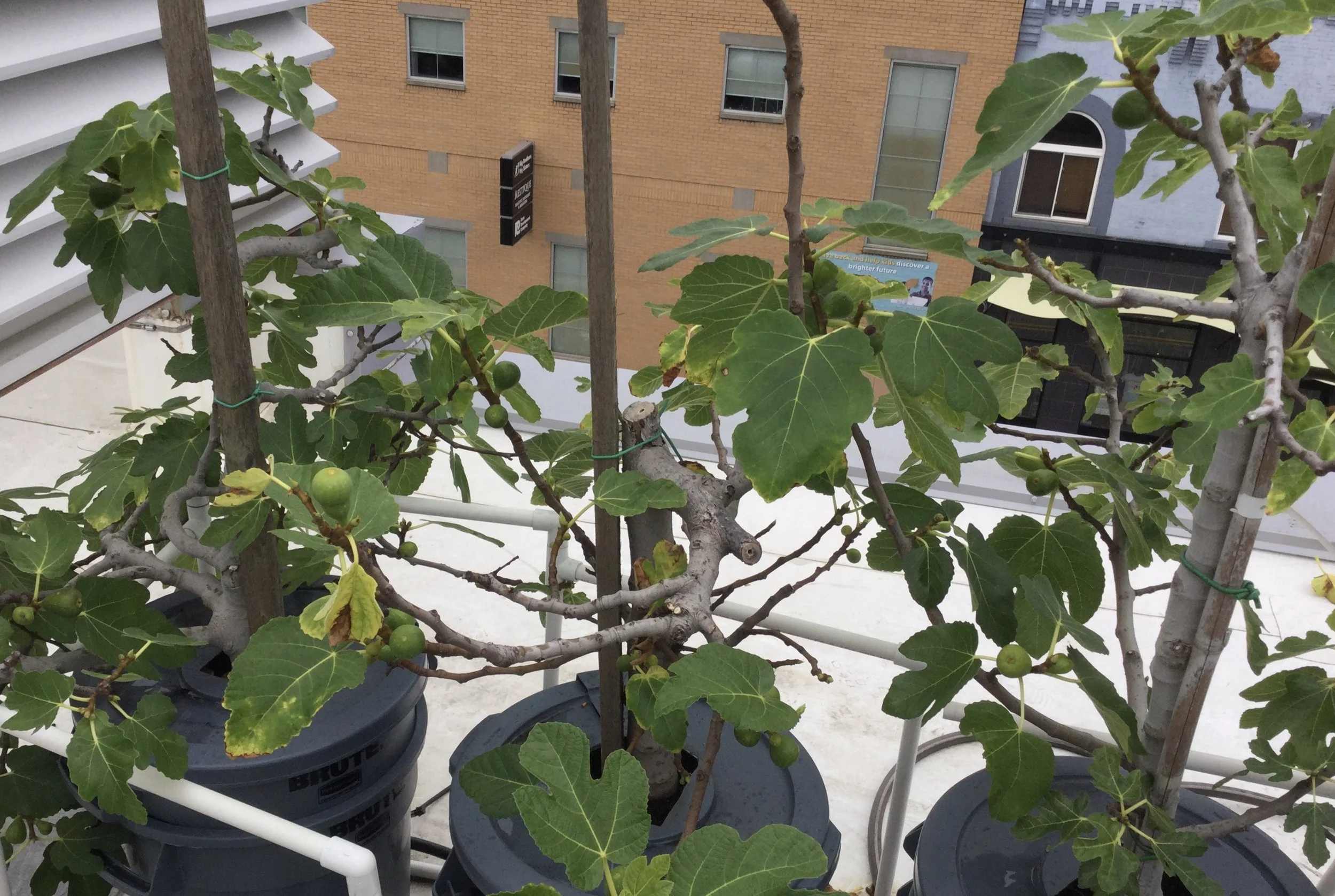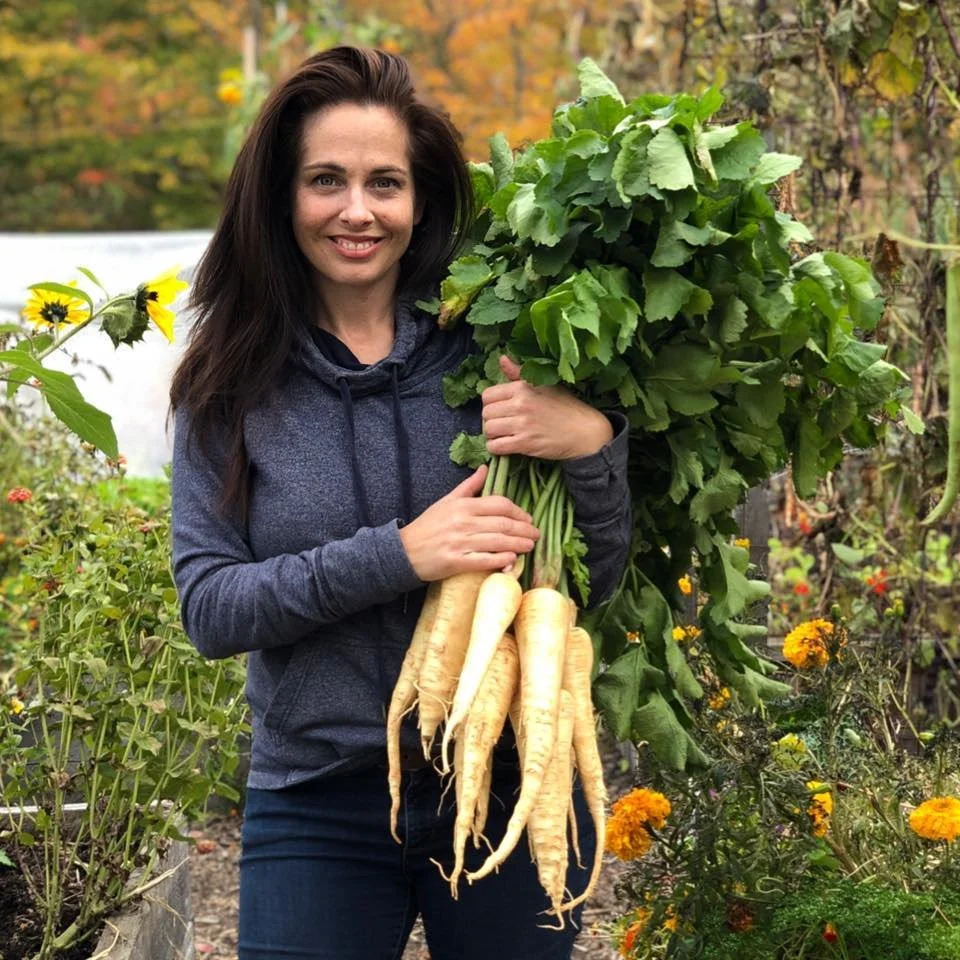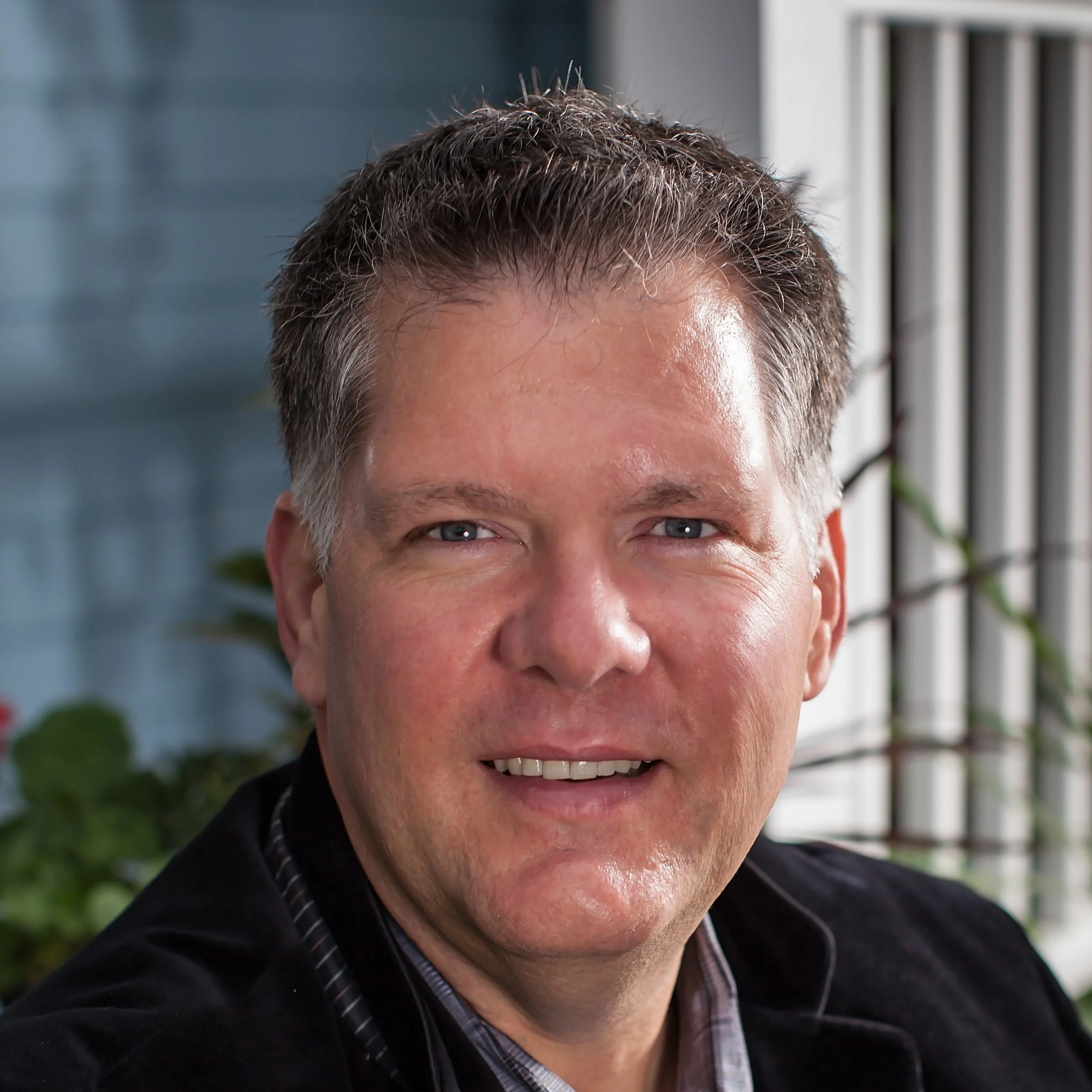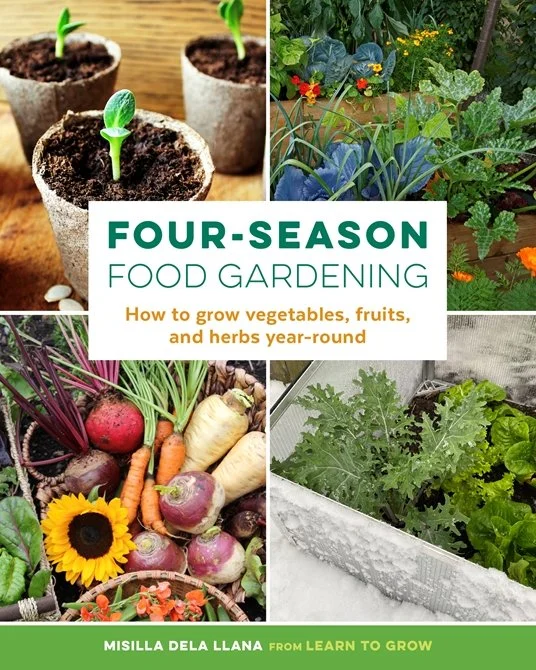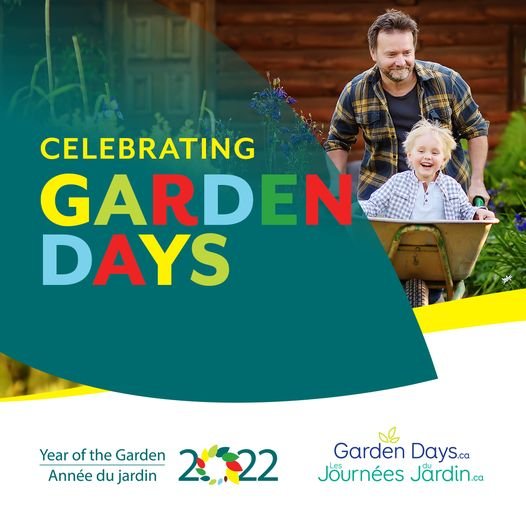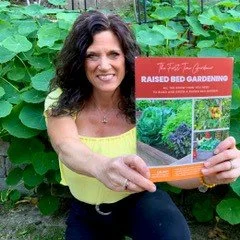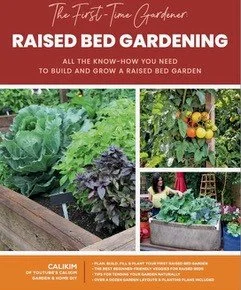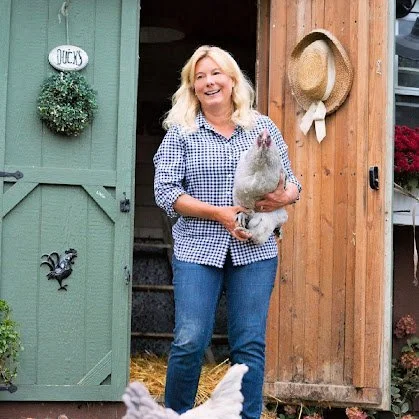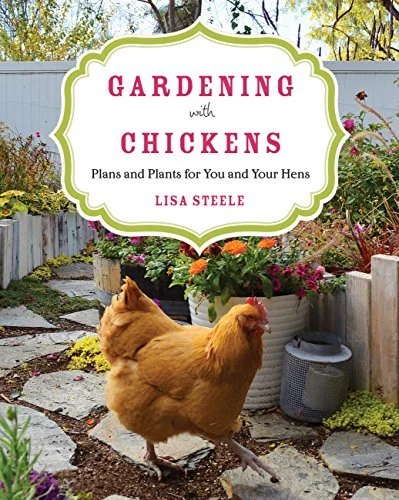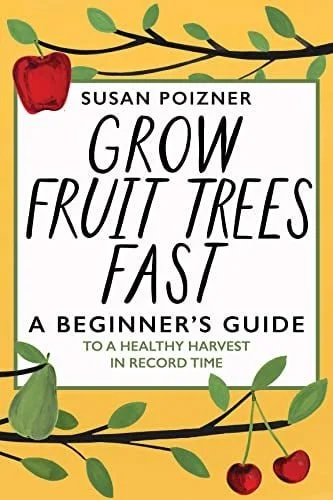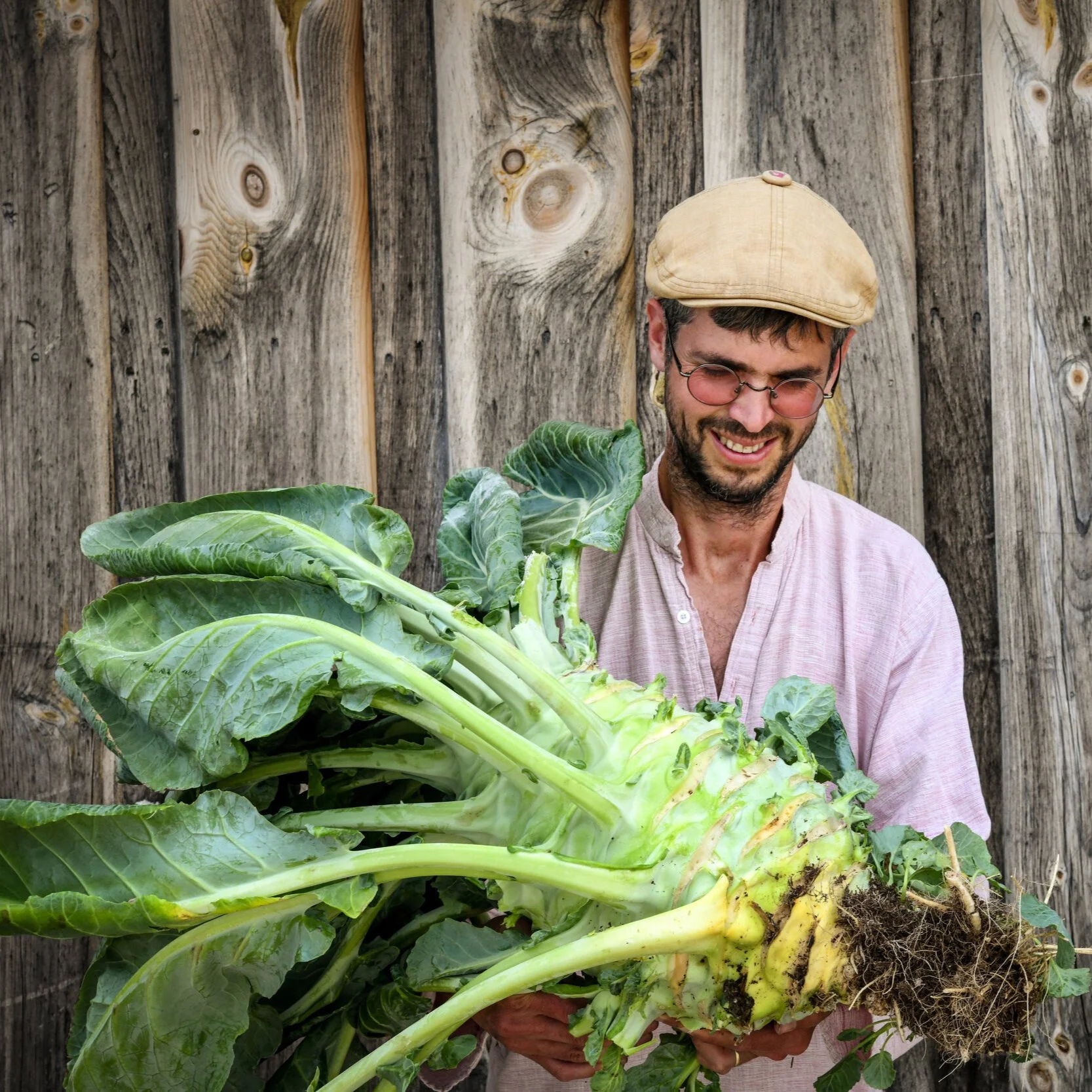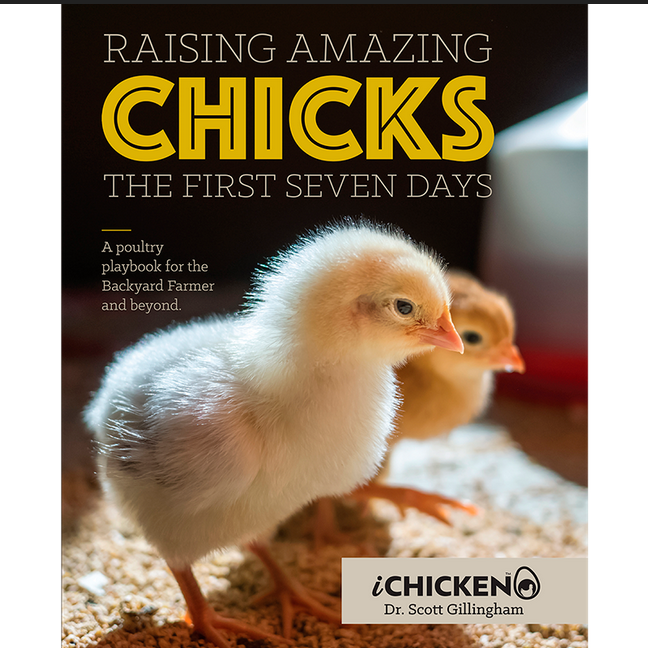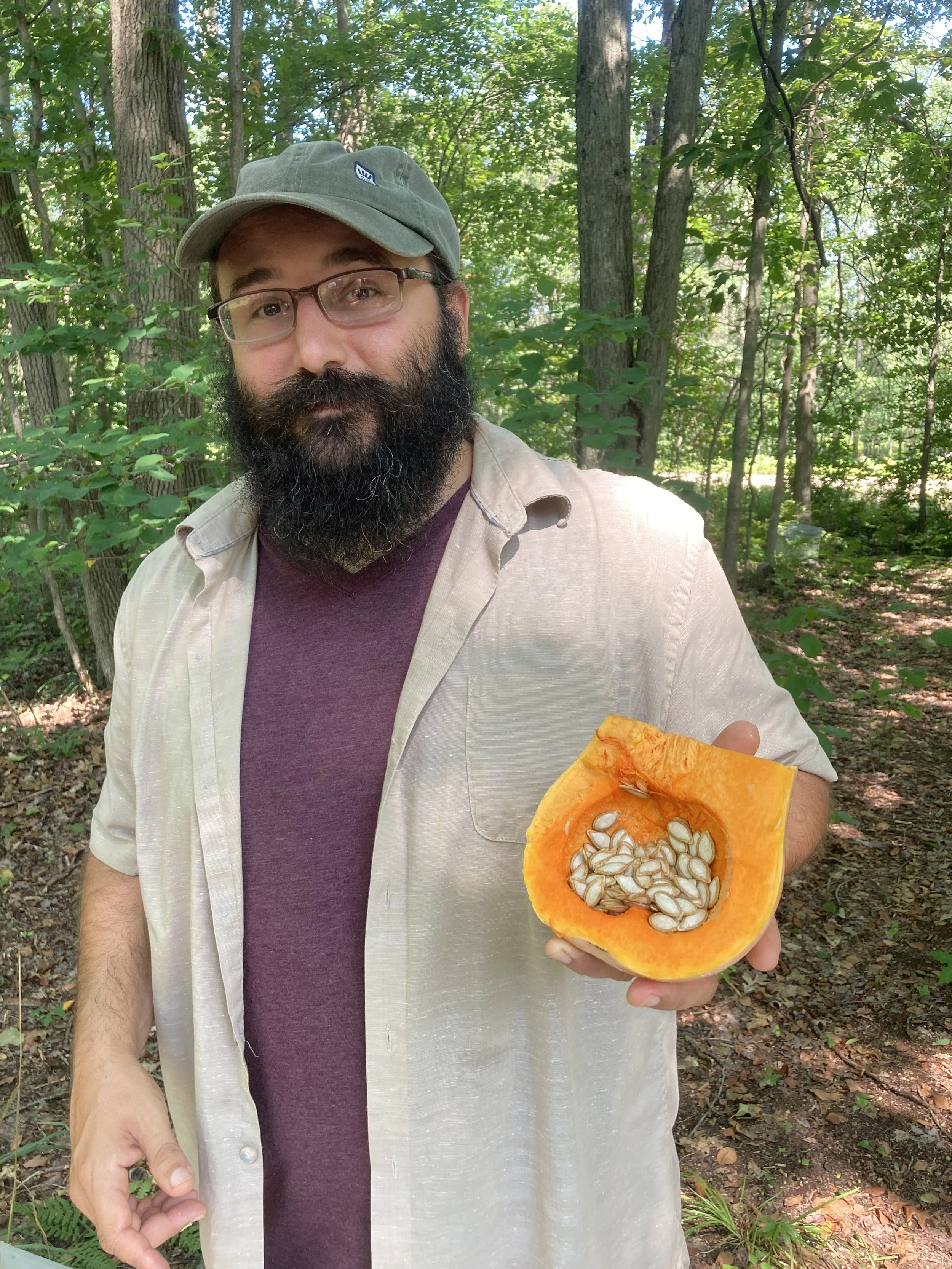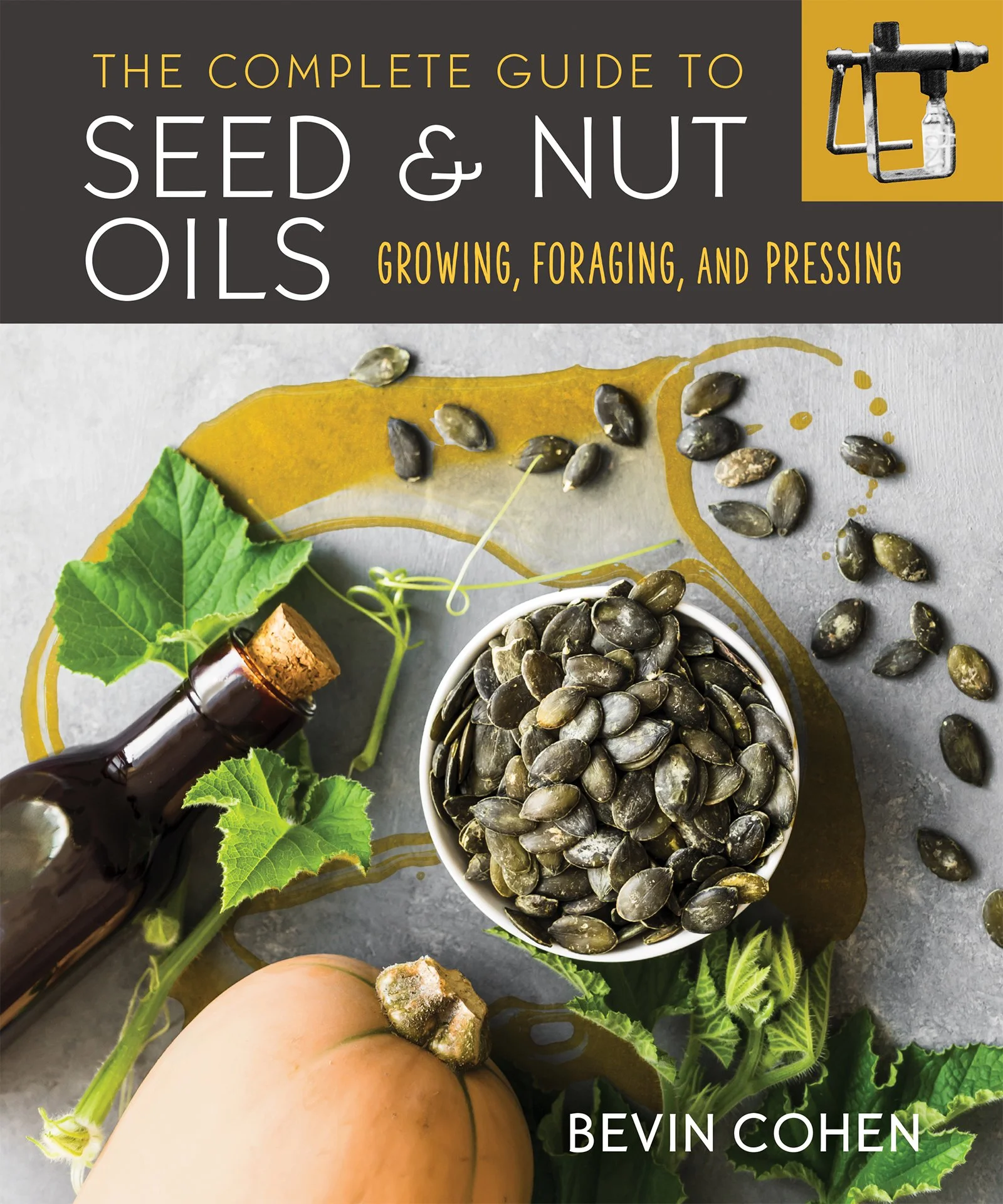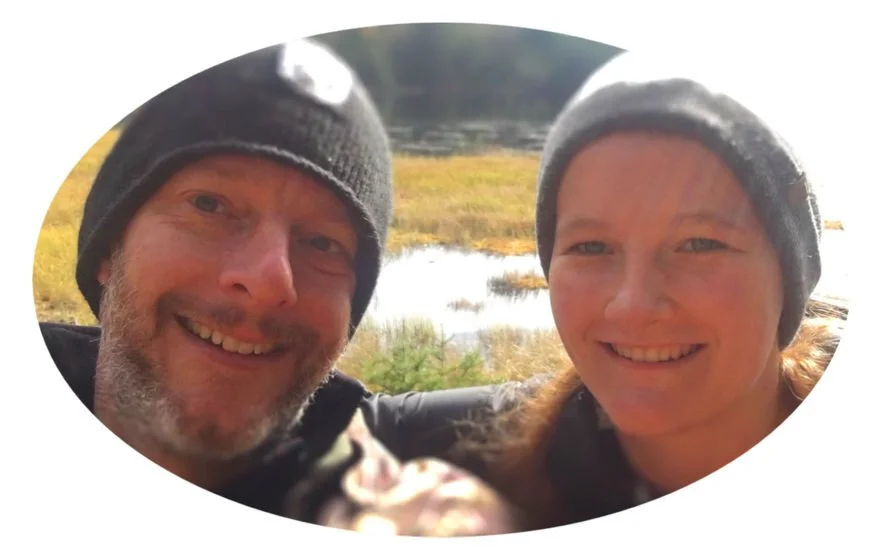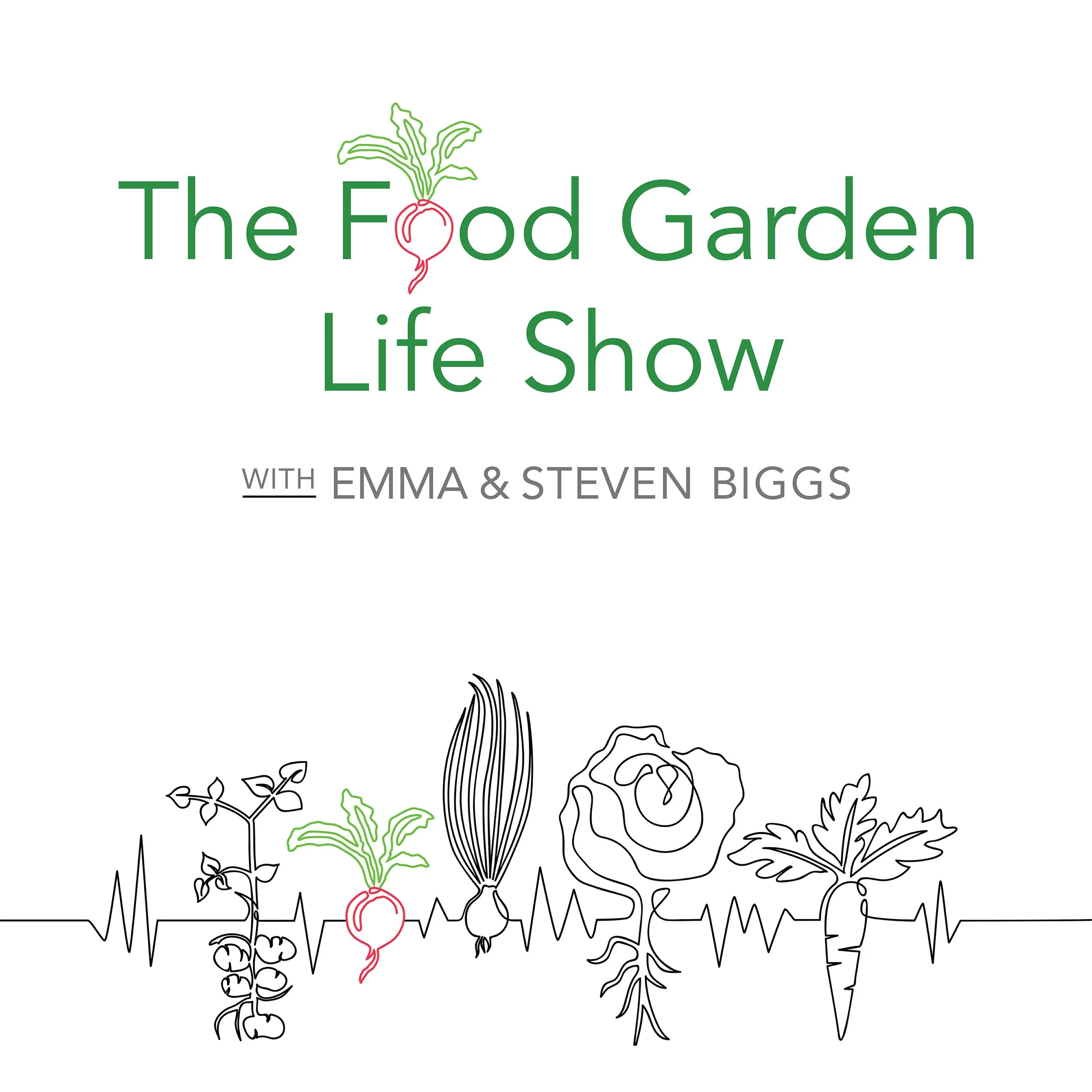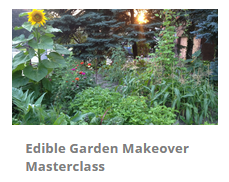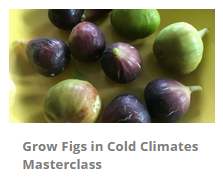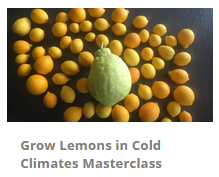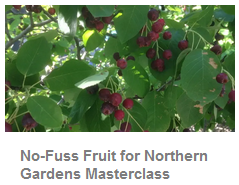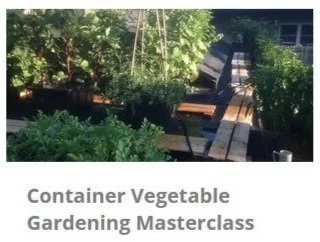Recipes in Bloom
Denise Schreiber, author of Eat Your Roses, tells us about edible flowers and shares recipe ideas, including rose-petal ice cream, roasted-red-pepper soup with nasturtiums, and lavender-flower biscotti.
Ice Cream, Sliders, Soups, and More with Edible Flowers
Denise Schreiber, author of Eat Your Roses, talks about edible flowers.
We chat with Pittsburgh author and horticulturist Denise Schreiber about edible flowers.
Schreiber is the author of the book Eat Your Roses.
We talk about:
Common edible flowers
Lesser-known edible flowers
Top tips for edible flowers
Edible-flower recipes, including rose-petal ice cream, pork sliders with nasturtium, roasted-red-pepper soup with nasturtium, lavender-flower biscotti
Helping Kids Understand Light...with Skittles!
Darryl and Aden Nelson talk about gardening under lights and teaching kids about light.
Bringing Light to a Children’s Science Camp
We chat with Darryl Nelson and his teenage son, Aden, about light and gardening under lights.
Darryl and Aden tell us how they taught children about light at a children’s event at a local museum. (Spoiler alert: it involved colourful Skittles candy.)
Darryl is an avid food gardener — and his specialty is light. His business, Just Led Us, specializes in lighting.
Land Conservation, Public Access, and Figs!
Jack Spruill joins us to talk about land conservation, public access — and figs!
Land Conservation
We chat with Jack Spruill, whose farm is on the shore of North Carolina’s Albemarle Sound, the largest freshwater sound in the world.
Spruill plans to donate the farm to an organization that will maintain public access, with the land used for low-impact farming, research, and education programs.
At the moment, some of the property is used for a community garden — and a community fig orchard.
We talk about:
The idea of public access, and how it scares some organizations
Mechanisms for land conservation
Tips for bringing people together around food and gardening
The community fig orchard
Connect
Spruill Farm: spruillfarm.org
Tales of Polar Bears and Brook Trout
Mike Borger from Canada Fishing Guide talks about adventures in pursuit of brook trout, and shares fishing tips.
Talking about brook trout and fishing with Mike Borger from Canada Fishing Guide.
Time Outdoors…and Trout
You probably never expected to hear about polar bears on The Food Garden Life Show.
Today’s show is a bit of a departure from our usual focus on plants. We continue with our focus on food, the outdoors, and the human story.
Time Outdoors…and Family
Mike Borger, lived some of his younger years as a self-described canoe bum, travelling northern waters in pursuit of brook trout. Today, he helps people plan trips to remote fishing destinations through his business Canada Fishing Guide.
We learned of Mike Borger when a friend sent us a link to a video of a great family trip: A Dad who takes his 10-year-old son on a spring brook-trout fishing trip into Algonquin Park – and they get the mother lode of fish.
In today’s show, my son Quinn, an avid angler, joins in our chat with his fishing questions.
We talk about:
Travelling northern canoe routes (and a polar bear encounter!)
Mike’s passion for brook trout
His epic brook trout fishing trips to Algonquin Park with his son, Brendan
Favourite tackle
Reading a lake when fishing for brook trout
Tips for new anglers
How he created a business doing what he loves
Connect
Canada Fishing Guide: canadafishingguide.net
Seasonal Garden Tips + Wild and Specialty Foods
In this episode: Seasonal tips with Joanne Shaw and Matthew Dressing; and foraging and specialty foods with Jack Hamrick.
Talking about seasonal gardening activities with Joanne Shaw and Matthew Dressing from Down the Garden Path.
Summer in the Garden
In the first part of the show, we chat with landscape designers Joanne Shaw and Matthew Dressing, hosts of the Down the Garden Path radio show and podcast.
We talk about:
Seasonal gardening tips
What to do in the garden now
Their new book, Down the Garden Path
Foraged
In the second part of the show we talk about unique foods, foraging, and turning your passion into a career with Jack Hamrick from Foraged.
Jack Hamrick from Foraged talks about specialty foods and connecting foragers and specialty producers with consumers.
He tells us about:
How a chat with a forager and some Chicken of the Woods mushrooms set him on the path to creating an online marketplace for foraged and specialty foods
The journey of building a business
Top tips to get started with a food business
Unique foods he loves on Foraged
Kitchen Gardening: Grow Leftover Greens, Stalks, Seeds
Katie Elzer-Peters tells us about kitchen gardening. That is, gardening in the kitchen -- with leftover greens, seeds, and roots.
Katie Elzer-Peters tells us about kitchen gardening.
Katie Elzer-Peters tells us about kitchen gardening. That is, gardening in the kitchen -- with leftover greens, seeds, and roots.
We talk about growing:
sweet potato
carrots
lettuce
celery
beets
green onions
leeks
turmeric
ginger
saving seeds from squash and tomatoes
Katie's is the author of No-Waste Kitchen Gardening: Regrow Your Leftover Greens, Stalks, Seeds, and More.
Rooftop Veggie Garden and Figs in Pittsburgh
Pittsburgh gardener Seth Finn talks about the rooftop garden where he grows veg and figs.
Fig plants on the roof of Dinette restaurant in Pittsburgh.
Container Gardening
Pittsburgh gardener Seth Finn talks about his container garden and the container garden on the roof of his daughter’s restaurant.
The restaurant rooftop garden furnished the restaurant with fresh figs and shishito peppers amongst other things.
We talk about:
Wicking containers
How often to replace or top up the potting soil
Growing figs in wicking containers on the roof
Plumbing together a series of containers to simplify watering
Rose Garden Rejig Creates Balance
Alex Henderson from Royal Botanical Gardens talks about creating a new rose garden, a mixed garden with ecological balance.
Alex Henderson from RBG talks about creating a rose garden with ecological balance.
A Rose Garden Re-Imagined
In this episode we speak with Alex Henderson about the rejuvenated rose garden at Royal Botanical Gardens.
Henderson, Curator of Living Collections, explains that the original rose garden, planted in 1967, was suffering from the combined effects of poor soil health, rose varieties susceptible to disease, and a ban on cosmetic pesticides.
We chat about:
Creating more ecological balance by having mixed plantings of roses and flowering perennials
Changing from overhead irrigation to drip irrigation
Selecting rose varieties with improved genetics
Summer in the Vegetable Garden and Hardy Apples
In this episode: Summer vegetable garden succession crops, growing in pots, and tomato support with Niki Jabbour; and hardy apples and growing apples in cold climates with Bob Osborne.
Talking about summer in the vegetable garden with Niki Jabbour.
Summer Vegetable Garden
In the first part of the show, we chat with vegetable gardening expert Niki Jabbour.
She shares tips about:
Summer vegetable garden succession crops
Growing vegetables in pots
Supporting tomato plants
Managing slugs
Jabbour is an award-winning author of four books: The Year Round Vegetable Gardener, Groundbreaking Food Gardens, Veggie Garden Remix, and Growing Under Cover. As well as hosting and producing The Weekend Gardener radio show, she is a CBC radio columnist. Her award-winning website is savvygardening.com.
Hardy Apples
In the second part of the show we talk about hardy apples with Bob Osborne.
He tells us about:
Choosing a location for apple trees
Apple rootstock
Tips for growing apples in cold climates
Apple varieties
Cider apple varieties
Osborne has over 40 years experience propagating and selling apples. He runs Corn Hill Nursery in New Brunswick, is a CBC radio columnist, and the author of the book Hardy Apples: Growing Apples in Cold Climates.
Weed-Free Bale Gardens and Mushrooms
Joel Karsten talks about straw-bale gardening and growing mushrooms on straw bales.
Joel Karsten joins us to talk about straw-bale gardens and growing mushrooms.
Straw-Bale Gardening
In this episode we speak with Joel Karsten about straw-bale gardening.
He is the author of Straw Bale Gardens Complete.
We chat about:
Straw bale gardens as a way to grow in very wet conditions
Making non-straw bales out of other available organic materials
Trellising for straw-bale gardens
Making raised straw-bale gardens
Growing mushrooms on straw bales (spoiler alert: then you can grow veggies afterwards!)
Four-Season Food Gardening
Misilla dela Llana joins us to talk about four-season food gardening.
Misilla dela Llana, author of Four-Season Food Gardening, joins us to talk about growing vegetables year-round.
Year-Round Food Gardening
In this episode we visit Misilla dela Llana in Washington State to talk about growing food year-round.
She is the host of the YouTube channel Learn to Grow, where she shares her passion for growing food.
In this episode we chat about:
Extending the growing season
Crops for season extension
Perennial food crops
Some of her top crops
Her new book is Four-Season Food Gardening: How to grow vegetables, fruits, and herbs year-round.
The Garden Life and Mud Pies
Michel Gauthier and Cheney Creamer talk about living the garden life and The Year of the Garden.
Year of the Garden
2022 is The Year of the Garden here in Canada.
This year of celebration includes lots of ideas to help people weave gardens and gardening into their lives.
We chat with Michel Gauthier and Cheney Creamer about their weekly Year of the Garden invitations that offer people something simple to do in the garden.
Gauthier is the executive director of the Canadian Garden Council. Creamer is the chair of the Canadian Horticultural Therapy Association.
Anything that slows us down has to be good for us.” Michel Gauthier
Live the Garden Life
How do you weave gardening into your life?
Tell them about it by sharing your garden and what you love about gardening, and use the hashtag #yearofthegarden.
No Groceries North of 60
Suzanne Crocker joins us from Dawson City, Yukon to talk about a year eating only locally sourced food, and about gardening in the north.
Eating Locally in Yukon
Crocker and her family ate locally produced food for an entire year. She shares the story in her film First We Eat.
Suzanne Crocker joins us from Dawson City, Yukon to tell us about the year she spent knowing where all the food on her plate came from.
There was no salt, no sugar, and no caffeine. There were three hungry (and sceptical) teenagers, and a reluctant husband. There was no grocery-store food in the house for the entire year.
“I knew where every single ingredient on my plate came from.”
Food Discoveries
Crocker talks about some of the techniques she learned during the year:
Making birch syrup to use as a sweetener
Foraging weeds and spruce tips
Juicing potatoes to make a thickener
Using rhubarb juice as a vinegar substitute
“It was kind of like your taste buds came alive,” she says as she talks about what it was like after getting through the first couple of months with no added salt.
Gardening North of 60
With only a couple of months of frost-free days, the gardening season is short and intense. The intense light causes some cool-weather vegetables such as spinach to bolt.
Crocker talks about crops that do and don’t grow in Dawson — and about gardening with moose!
From Medicine to Film
Crocker was a rural family doctor before becoming a filmmaker. She captured the year of her family eating locally in her new film, First We Eat.
This isn’t the first time she’s turned the lens on her family. Her first feature documentary, All The Time In The World, shared her family’s experience leaving home to live in the remote Yukon wilderness for 9 months.
Links and Resources
Rent the film (online streaming available in only Canada until fall 2022, when it becomes available worldwide)
Cold-Hardy Fruit and Nuts, Gardens for Native Pollinators
In this episode: Cold-hardy fruit with Allyson Levy and Scott Serrano and gardening for native pollinators with Sheila Colla and Lorraine Johnson.
Talking about cold-hardy fruits and nuts and native pollinators.
Cold-Hardy Fruit and Nuts
In the first part of the show, we chat with veteran fruit growers Allyson Levy and Scott Serrano, founders of Hortus Arboretum and Botanical Gardens.
Their focus is cold-hardy fruit and nuts with good disease resistance and minimal pest problems — plants suited to home gardens and landscapes.
They tell us about:
Medlar
Mulberry
Himalayan Chocolate Berry
Honeyberry (a.k.a. Haskap)
Hazelnut
Their new book is Cold-Hardy Fruits and Nuts: 50 Easy-to-Grow Plants for the Organic Home Garden or Landscape.
Creating Habitat for Native Pollinators
In the second part of the show we talk about native bees and how we can support them in our gardens, with bumblebee researcher Sheila Colla and native plant expert Lorraine Johnson.
They tell us about:
Gardening as a way to support native bee species
How honeybees can impact native bee populations
The disappearance of the rusty patched bumblebee in Ontario
Their new book is A Garden for the Rusty-Patched Bumblebee: Creating Habitat for Native Pollinators.
Food, Flowers, and Fun for Urban Gardens
Growing food and beauty in the city with Kathy Jentz and Teri Speight.
Urban gardeners Teri Speight and Kathy Jentz talk about creating gardens that are functional, productive, and beautiful.
Today we hang out with 2 urban gardeners who brainstormed 101 ways we can grow food and beauty in urban gardens.
Teri Speight and Kathy Jentz talk about creative ways that city dwellers can make productive, functional, and beautiful gardens.
Jentz is a journalist, editor, and frequent radio and TV guest. She is also the editor and publisher of Washington Gardener magazine.
Speight is a speaker, writer, and podcaster. She’s the former head gardener of the City of Fredericksburg, founding farmer of a CSA, and an estate gardener.
Grow in Containers
Deeper window boxes
Planting pockets
Succulents in a frame
Grow bags
Berries in containers
Make Gardens Fun and Beautiful
Fragrance freeway
Patchwork pavers
Make small spaces feel big through design
New Book: The Urban Garden
Jentz and Speight are authors of the new book, The Urban Garden: 101 Ways to Grow Food and Beauty in the City.
Raised Bed Gardening
CaliKim shares tips about growing vegetables in raised beds.
CaliKim joins us to talk about growing vegetables in raised beds.
Gardener and author CaliKim joins us from southern California to talk about growing vegetables in raised beds.
Grow Vegetables in Raised Beds
Raised beds can have a number of advantages:
Soil warms more quickly in spring
Less back and knee strain
A solution for locations with less-than-ideal soil
How to Make Raised Bed Gardens
CaliKim says that raised bed gardens don’t have to be a box or a square. “Think outside the box,” she advises.
A raised bed garden can be tailored to the yard and to the gardener. That could mean:
A shape suited to the location
Choosing materials that tie in to the style of the garden
A mobile unit to be place wherever there is available sunlight
“You have to make it fit your situation.”
Top Tip
CaliKim says would-be gardeners sometimes feel overwhelmed at the thought of making a garden.
Her top tip? Start small, but get started. “Just get started,” she says.
New Book
Her new book is Raised Bed Gardening: All the Know-How you Need to Build and Grow a Raised Bed Garden.
Gardening with Chickens, Grow Fruit Trees
In this episode: Chickens in the garden with Lisa Steele, and growing fruit trees with Susan Poizner.
Author and chicken expert Lisa Steele talks about chickens in the garden.
Gardening with Chickens
In the first part of the show, we chat with chicken expert and author Lisa Steele.
Steele is a Maine Master Gardener and 5th generation chicken keeper.
In this episode, she tells us about:
Integrating chickens into the garden
What to grow for chickens
What to avoid growing
The pecking order, and how to deal with it
Using chicken manure in the garden
Using eggshells and cycling them back into the garden
Lisa Steele’s book Gardening with Chickens.
Grow Fruit Trees Fast
In the second half of the show, we chat with fruit tree expert Susan Poizner, founder of Orchard People.
Poizner is the host of The Urban Forestry Radio Show, a college instructor, and the author of the award-winning book Growing Urban Orchards.
In this episode, she tells us about:
What to do with fruit trees in the spring
Shopping for fruit trees
Pruning fruit trees
Common problems first-time fruit tree growers often face
The community orchard she helped found in Toronto
Looking for more tips about growing fruit trees? Poizner’s latest book is Grow Fruit Trees Fast.
A Passion for Heirloom Vegetable Seeds
Jere Gettle from Baker Creek Heirloom Seeds talks about heirloom vegetable seeds.
Heirloom Vegetable Seeds
Jere Gettle from Baker Creek Heirloom Seeds joins us to talk seeds, seed saving, and seed collecting.
He loves meeting gardeners, chefs, and farmers who share old seed varieties and the stories behind them.
Lifelong Passion for Heirloom Seeds
Gettle started his seed business as a teenager, with a 12-page photocopied price list.
Today, the seed company tests over 4,000 heirloom seed varieties each year.
Gettle says that for a variety to make the cut for the catalogue, he’s looking for 3 things:
It’s beautiful
It tastes great
It grows well
Connect
Baker Creek Heirloom Seed: rareseeds.com
If this episode piqued your interest in seeds, tune in to the November 2020 episode entitled Creating New Tomato Varieties. Emma chats with heirloom seed saver and tomato expert Linda Crago about breeding tomato varieties.
How to Raise Baby Chicks
Dr Scott Gillingham on how to raise chicks, the first 7 days.
Dr. Scott Gillingham talks about how to successfully raise chicks.
What do you Need to Raise Chicks?
We’ve talked about backyard poultry here on the show before, but we’ve never explored raising chicks.
Our guest today is Dr. Scott Gillingham from Guelph, Ontario. He’s a poultry veterinarian who works with big flocks. But he’s also a homesteader with his own small flock.
Commercial scale and homestead scale agriculture are often in different silos. His passion is bridging the silos.
We’ll hear about:
Crop fill
Brooding chambers
Preventative medicine
Comfort zones
Giving chicks the right temperature
Suitable feed for chicks
“You become the hen and you have to understand the attributes of a hen and how to provide for and nourish that chick.”
Observation is Very Important
We’ll also talk about something that is very useful tool when raising chicks: A 5-gallon bucket.
Gillingham explains how he uses a simple bucket to sit on and observe what’s up. It works in big commercial barns; it works with small home flocks.
He says that when chicks have everything they need you’ll see them eating, drinking, sleeping, and playing. If not — you’ll see huddling for warmth or with wings up trying to cool themselves.
Book about How to Raise Chicks
Gillingham’s book is Raising Amazing Chicks: The First Seven Days.
Connect
Scott Gillingham’s Website: www.ichicken.ca
Press Seed and Nut Oils at Home
Bevin Cohen talks about how to press your own seed and nut oils.
Bevin Cohen from Small House Farm talks about how to make your own seed and nut oils.
Make Seed and Nut Oils at Home
Our guest today makes oils from a wide range of nuts and seeds.
Bevin Cohen runs Small House Farm in Michigan, where he specializes in oils, seeds, and cosmetics.
Home Oil Pressing
Cohen says home oil pressing gives fresh oil with superior flavour to oils that are mass produced.
He explains how to press small batches of oil at home.
Oil Seeds for Northern Gardeners
In this episode, Cohen talks about how to press oil from:
Flax
Hemp
Walnut
Pumpkin
Black currant
Borage
Watermelon
The Whole Nut or Seed
Leftovers from oil production of some seeds provides “seed cake” that can be used for cooking. Examples are pumpkin seed cake and walnut seed cake.
Shelling Tip
Trying to sort black walnut shell from nut pieces? Put them in water.
Shell fragments float, while the nut meat sinks.
Book about Seed and Nut Oils
Bevin Cohen’s new book, The Complete Guide to Seed & Nut Oils.



